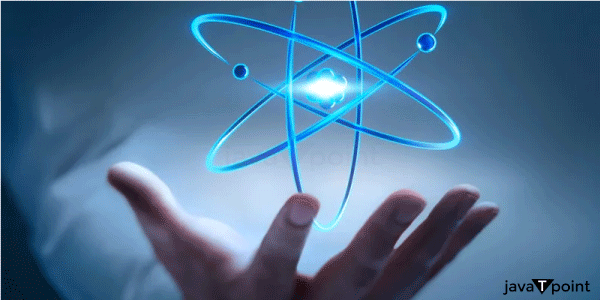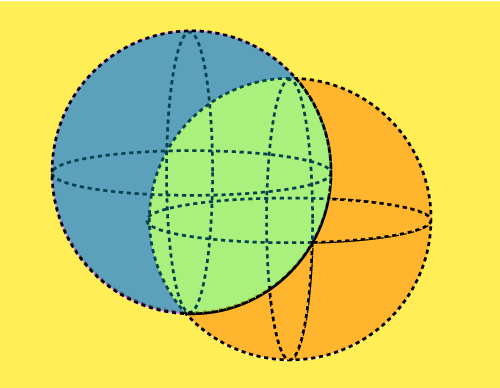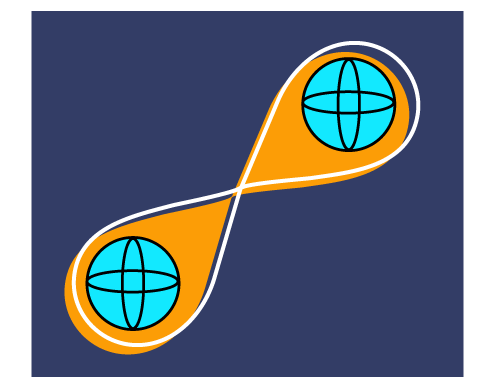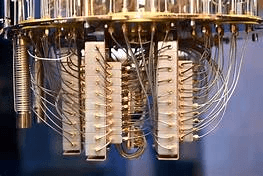What is Quantum Computing
Quantum Computing is the process of using quantum-mechanics for solving complex and massive operations quickly and efficiently. As classical computers are used for performing classical computations, similarly, a Quantum computer is used for performing Quantum computations. Quantum Computations are too complex to solve that it becomes almost impossible to solve them with classical computers. The word 'Quantum' is derived from the concept of Quantum Mechanics in Physics that describes the physical properties of the nature of electrons and photons. Quantum is the fundamental framework for deeply describing and understanding nature. Thus, it is the reason that quantum calculations deal with complexity. Quantum Computing is a subfield of Quantum Information Science. It describes the best way of dealing with a complicated computation. Quantum-mechanics is based on the phenomena of superposition and entanglement, which are used to perform the quantum computations. For performing Quantum calculations, a Quantum Computer is used that is dissimilar to a classical computer. Although the concept of quantum computing came earlier, it didn't gain much popularity then. Superposition and Entanglement1. Superposition: A Quantum deals with the smallest particles found in nature, i.e., electrons and photons. These three particles are known as Quantum particles. In this, superposition defines the ability of a quantum system to be present in multiple states (one or more) at the same time. 
In a quantum Computer, a qubit can exist in a superposition of states. For example, it is able to constitute both 0 and 1 concurrently. This property permits quantum computers to assess a couple of opportunities at the same time. A common analogy is that it's like having a spinning coin. It, without a doubt, is each head and tail till measured. 2. Entanglement: Entanglement defines a very strong correlation between the quantum particles. These particles are so strongly linked that even if we place one particle at one end of the universe and one at the other end, both of them dance instantaneously. 
Entanglement occurs while qubits become correlated. If you have entangled qubits, measuring one right now determines the country of the opportunity, no matter the space among them. For example, if one qubit is measured as "up," the other is confident to be "down." This belonging is regularly defined as "spooky movement at a distance." Quantum Computer
A quantum computer is a computer that leverages the principles of quantum mechanics to approach statistics distinctly compared to classical computer structures. Instead of the use of classical bits (0s and 1s), quantum computer structures use quantum bits or qubits, which can exist in superposition and be entangled with exceptional qubits. Example: Imagine you're fixing a complicated optimization hassle. In classical computing, you would look at one answer at a time. In quantum computing, you could evaluate many answers right now to superposition. Entanglement lets in qubits to artwork collectively in ways that classical bits cannot, potentially locating the fine solution an entire lot faster. Quantum computers are particularly promising for applications like cryptography, drug discovery, and complex simulations where exploring numerous possibilities simultaneously can lead to significant speed-ups. Currently, researchers are working with Quantum computers in the field of cybersecurity to break codes and encrypt electronic communications to explore better cybersecurity and protected data. What are Quantum BitsQuantum bits, or qubits, are the essential gadgets of statistics in quantum computing. Unlike classical bits that may be either 0 or 1, qubits can exist in a superposition of each zero and 1 concurrently. These specific belongings allow quantum computers to method multiple opportunities in parallel, making them particularly effective for fixing complicated troubles and performing specialized responsibilities in diverse fields. When two qubits of a pair are placed at a far distance, and if the state of one qubit changes, the state of the other will instantaneously change in a predictable manner. A connected group of quantum bits or qubits has much more power than the same binary digit number. History of Quantum ComputingIn the early 1980s, Paul Benioff(a physicist) proposed a quantum mechanical model of the Turing Machine. Since then, the concept of Quantum Computing came into existence. Later on, it was suggested that a quantum computer could simulate those things that a classical computer cannot. The suggestion was given by Richard Feynman and Yuri Manin. Peter Shor developed a quantum algorithm in 1994 for factoring the integers. The algorithm was strong enough to decrypt RSA-encrypted communications. More research is still going on in the field of Quantum Computing. On 23 October 2019, Google AI, in partnership with NASA (National Aeronautics and Space Administration), US, published a paper in which it was claimed that they had achieved Quantum Supremacy. Although some of them have disputed this claim, it is still a significant milestone in history. Applications of Quantum ComputingThere are the following applications of Quantum Computing:
These packages illustrate how quantum computing's unique competencies, along with superposition and entanglement, provide the capacity to solve problems and revolutionize industries from cybersecurity and healthcare to logistics and substance studies. Classical Computing Vs. Quantum ComputingThe differences between classical computing and quantum computing are described in the below table:
Future of Quantum ComputingThe future of Quantum Computing seems quite enhanced and productive for world trade. The above-discussed points tell that it is the beginning of the concept and will surely become a part of our life. It is not the mainstream yet. In the future, the quantum systems will enable the industries to tackle those problems, which they always thought impossible to solve. According to reports, the market of quantum computing will grow strongly in the coming decades. Google is showing a great focus and interest in the theory of quantum computing. Recently, Google has launched a new version of TensorFlow, which is TensorFlow Quantum (TFQ). TFQ is an open-source library. It is used to prototype quantum machine learning models. When it will be developed, it will enable developers to easily create hybrid AI algorithms that will allow the integration of techniques of a quantum computer and a classical computer. The main motive of TFQ is to bring quantum computing and machine learning techniques together to evenly build and control natural as well as artificial quantum computers. Scientists are still facing some new and known challenges with quantum computing, but it will surely lead to software development in the coming years.
Next TopicHow does a computer work
|
 For Videos Join Our Youtube Channel: Join Now
For Videos Join Our Youtube Channel: Join Now
Feedback
- Send your Feedback to [email protected]
Help Others, Please Share










